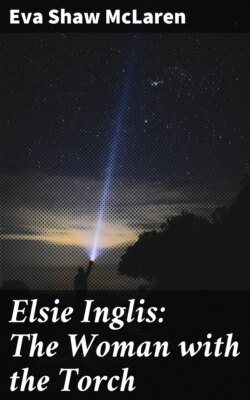Читать книгу Elsie Inglis: The Woman with the Torch - Eva Shaw McLaren - Страница 55
На сайте Литреса книга снята с продажи.
JOHN FORBES DAVID INGLIS ELSIE INGLIS' FATHER "If I have been able to do anything—whatever I am, whatever I have done—
I owe it all to my Father." Elsie Inglis, at a meeting held in the Criterion
Theatre, London, April 5th, 1916
ОглавлениеThe Hospice for Women and Children in the High Street of Edinburgh was started. Her practice grew, and she became a keen suffragist. During these years also she evidently faced and solved her problems.
She was a woman capable of great friendships. During the twenty years of her professional life perhaps the three people who stood nearest to her were her sister, Mrs. Simson, and the Very Rev. Dr. and Mrs. Wallace Williamson. These friendships were a source of great strength and comfort to her.
We may fitly close this chapter by quoting descriptions of Dr. Inglis by two of her friends—Miss S. E. S. Mair, of Edinburgh, and Dr. Beatrice Russell:
"In outward appearance Dr. Inglis was no Amazon, but just a woman of gentle breeding, courteous, sweet-voiced, somewhat short of stature, alert, and with the eyes of a seer, blue-grey and clear, looking forth from under a brow wide and high, with soft brown hair brushed loosely back; with lips often parted in a radiant smile, discovering small white teeth and regular, but lips which were at times firmly closed with a fixity of purpose such as would warn off unwarrantable opposition or objections from less bold workers. Those clear eyes had a peculiar power of withdrawing on rare occasions, as it were, behind a curtain when their owner desired to absent herself from discussion of points on which she preferred to give no opinion. It was no mere expression such as absent-mindedness might produce, but was, as she herself was aware, a voluntary action of withdrawal from all participation in what was going on. The discussion over, in a moment the blinds would be up and the soul looked forth through its clear windows with steady gaze. Whether the aural doors had been closed also there is no knowing."
"She was a keen politician—in the pre-war days a staunch supporter of the Liberal party, and in the years immediately preceding the war she devoted much of her time to work in connection with the Women's Suffrage movement. She was instrumental in organizing the Scottish Federation of Women's Suffrage Societies, and was Honorary Secretary of the Federation up to the time of her death. But the factor which most greatly contributed to her influence was the unselfishness of her work. She truly 'set the cause above renown' and loved 'the game beyond the prize.' She was always above the suspicion of working for ulterior motives or grinding a personal axe. It was ever the work, and not her own share in it, which concerned her, and no one was more generous in recognizing the work of others.
"To her friends Elsie Inglis is a vivid memory, yet it is not easy clearly to put in words the many sides of her character. In the care of her patients she was sympathetic, strong, and unsparing of herself; in public life she was a good speaker and a keen fighter; while as a woman and a friend she was a delightful mixture of sound good sense, quick temper, and warm-hearted impulsiveness—a combination of qualities which won her many devoted friends. A very marked feature of her character was an unusual degree of optimism which never failed her. Difficulties never existed for Dr. Inglis, and were barely so much as thought of in connection with any cause she might have at heart. This, with her clear head and strong common sense, made her a real driving power, and any scheme which had her interest always owed much to her ability to push things through."
In the following chapters the principal events in her life during these twenty years—1894 to 1914—will be dealt with in detail, before we arrive at the story of the last three years and of the "Going Forth."
